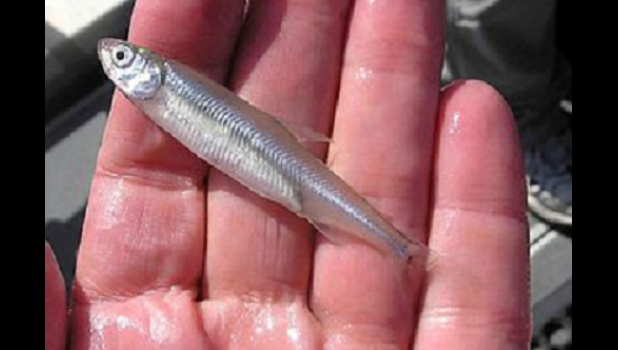It’s time to modernize the Endangered Species Act; people are more important than bait fish
The Endangered Species Act (ESA) is the most weaponized law in America. Radical environmentalists use the law as a blunt object to push the zero-growth agenda on the rest of the country, even invading private property. The law prioritizes bait fish over children, kills thousands of jobs, puts people into poverty, and violates the constitution. It is time for Congress to modernize the law and recognize some things are more important than a two-inch fish.
As with most laws passed by Congress, the ESA had good intentions when it was signed into law in 1973. However, that quickly changed when radical environmentalists realized Congress handed them a weapon. One of the first cases after the law’s passage set a precedent for how the ESA could be used as a blunt force object by the federal government and environmental groups.
The Tennessee Valley Authority (TVA) was building the Tellico Dam in the mid-70s. It was the last of 68 dams constructed in the Tennessee River Valley. A second-year law student at the University of Tennessee, Hiram Hill, submitted a petition to the Fish and Wildlife Service (FWS) to list the snail darter, a small fish the size of a paper clip, as endangered. FWS agreed with the petition and ruled the species was endangered. In 1976, Hill filed suit, using the power of the ESA, to seek an injunction and stop construction of the dam.
After several court decisions going back and forth, the case made its way to the Supreme Court in 1978 and became known as TVA v. Hill. The Supreme Court would rule in favor of Hill with Chief Justice Burger delivering the opinion of the court stating, “One would be hard-pressed to find a statutory provision whose terms were any plainer than those in Section 7 of the Endangered Species Act. Its very words affirmatively command all federal agencies ‘to ensure that actions authorized, funded, or carried out by them do not jeopardize the continued existence’ of an endangered species or ‘result in the destruction or modification of habitat of such species . . . .’ 16 U.S.C. 1536 (1976 ed.). This language admits of no exception.”
The federal government and environmental radicals now knew their weapon worked. The Supreme Court ruling gave opponents a blueprint to stop whatever construction project they disagreed with, meaning all.
The Delta Smelt is another small fish causing significant problems. Its habitat is in the Sacramento — San Joaquin River Delta, hence the name Delta Smelt. Never in history has a two-inch fish created so many problems. The small fish was put on the endangered species list in 1993. Since then, biologists and environmental officials have been doing whatever it takes to save the fish, including the not diverting fresh river runoff.
This is a problem because the delta is a giant intersection of snow-melt and ocean. When the snow melts, or it rains in northern California, the runoff is carried to the delta and pumped to 25 million Californians and hundreds of farms. However, the pumps can suck up the fish and are being turned off with the fresh water instead flowing out to sea, despite a 2015 survey only finding one Delta Smelt.
The region around the delta is some of the most fertile farmland in the world. The inability to pump water to the crops is putting hundreds of thousands of acres of farmland at risk. Over a third of the nation’s vegetables and nearly two-thirds of the country’s fruits and nuts come from California, according to the Department of Agriculture. Central Valley farmers say the bait fish has cost them $1.5 billion in lost income and 40,000 jobs.
Forgetting what the Delta Smelt cost the farmers, workers, and consumers, the California State government is looking at plans to save the bait fish that could cost billions more. They are now discussing plans to build tunnels from northern California that bypass the delta region altogether, thereby negating the need for the pumps. Early estimates have the project costing atleast $17 billion, sure to blow up California’s budget deficit.
The ESA doesn’t stop at public projects; it goes onto private property. Developers in Utah are finding this out the hard way. The state has 80,000 prairie dogs with a distinctive black eyebrow marking over each eye, making them “different” from the millions of other prairie dogs in the country. Because the Utah prairie dogs are on the ESA, the owners of the private property are not allowed to develop their private property the way they want, despite there being over 80,000 of them in the state. The developers are now depending on the Supreme Court to take up the case.
Radical environmentalists have succeeded in stopping local and state governments from completing infrastructure projects; now they are intent on preventing private citizens from developing their private property. If the ruling is upheld, how long before property rights become nonexistent?
Americans for Limited Government President Rick Manning is in favor of an update to the law stating, “The Endangered Species Act is one of the most abused laws in American history. Congress must act to restore the balance and ensure private property rights are restored.”
The ESA must be modernized. Radical environmentalists have used the law as a weapon to kill industries it disagrees with. The private property of citizens and the welfare of families should not be discounted because of a two-inch fish or prairie dogs. It is time for Congress to put people first.
Printus LeBlanc is a contributing editor at Americans for Limited Government.

